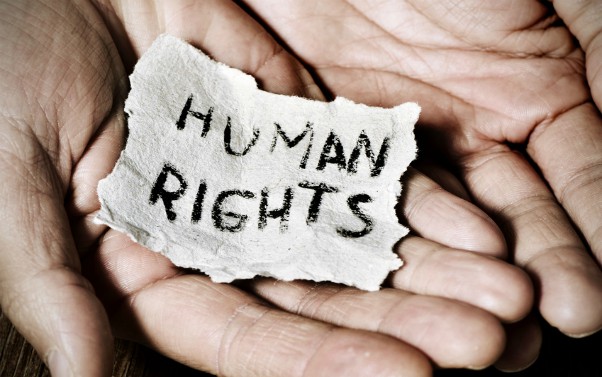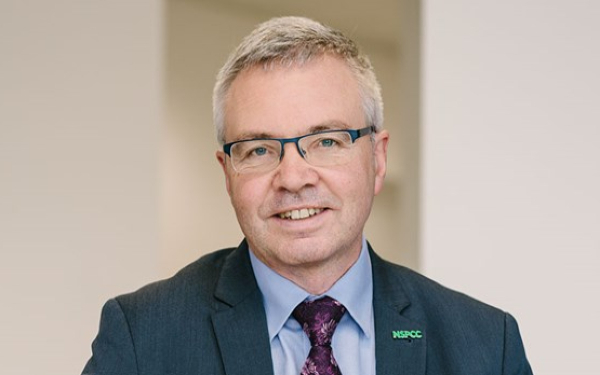
By Clare Jerrom and Mithran Samuel
Social Work Recap is a weekly series where we present key news, events, conversations, tweets and campaigns around social work from the preceding week.
From criticism of the lack of a social care workforce plan to accompany this week’s NHS strategy, concerns over the state of child protection and an obituary for a pioneering social worker to the government ditching its human rights reforms, here’s our week in social work:
Lack of social care workforce plan ‘a missed opportunity’

Photo: Zerbor/Adobe Stock
The release this week of the NHS’s first comprehensive workforce plan in its 75-year history has sparked criticism over the lack of a similar strategy for social care.
While welcoming the NHS England workforce plan, the Association of Directors of Adult Social Services warned that adult social care had “an equally pressing staffing crisis”, with vacancies – at 165,000 as of March 2022 – that were higher than in the health service.
Think-tank the Nuffield Trust said it was a “missed opportunity that we see no social care workforce plan promised alongside this”.
“The shortages and chronic staff turnover are even more damaging than in the NHS, and the two sectors share crucial staff groups like nurses, with a constant risk of health services sucking vital workers from fragile care providers,” added trust senior fellow Dr Billy Palmer.
The NHS plan acknowledged that its success was dependent on increasing the capacity of social care and said that expansion of the health workforce should not come at the expense of social care.
BASW welcomes ditching of Human Rights Act overhaul

Photo: nito
The British Association of Social Workers has welcomed the government’s decision to ditch its planned replacement of the Human Rights Act with a Bill of Rights.
Justice secretary Alex Chalk told the House of Commons this week the government would not be proceeding with the reform, championed by his predecessor, Dominic Raab.
The Bill of Rights would not have removed the UK from the ambit of the European Convention of Human Rights. However, it would have prevented the courts from interpreting the ECHR in a way that imposed new obligations on the state to prevent interference with people’s rights.
Previous such ‘positive obligations’, such as the recognition of ‘private’ deprivations of liberty in people’s homes, have had a major impact on social work practice, wrote Community Care Inform legal editor Tim Spencer-Lane in a 2022 piece on the proposed bill.
“This is a welcome move by the UK Government to drop a bill which would have undermined universal protections for human rights,” said the chair of BASW’s policy, ethics and human rights committee, Martin Sexton.
Social workers ‘firefighting’ with ‘massive caseloads’ – NSPCC chief

NSPCC chief executive Sir Peter Wanless
Social workers are “firefighting” under the weight of “massive caseloads”, undermining their ability to support children and families in need.
That was among the warnings from NSPCC chief executive Peter Wanless in a speech that claimed that a “lack of coherent national leadership” risked leaving the child protection system unable to cope with the cost-of-living crisis.
Wanless told the NSPCC’s ‘How Safe’ conference this week that the crisis was “putting intolerable pressure on families”, but said that “existing social structures and safety nets [were] stretched beyond breaking point”.
He added that the government’s response to the Independent Review of Children’s Social Care Review and the inquiry into the deaths of Arthur Labinjo-Hughes and Star Hobson, which includes plans to test a new approach to family help and child protection, was inadequate.
Wanless said these reforms needed to be rolled out more quickly than planned, adding: “Social workers absolutely must be given the tools and resources they need to do the job they want to do for families and children in need and operate within a joined up and functioning system.”
Plan to improve autism and learning disability training

Image: Artur/Adobe Stock
The government has launched a consultation on proposed standards for health and social care providers in training staff to work with autistic people and people with learning disabilities.
The proposed Oliver McGowan code of practice outlines how Care Quality Commission-registered providers can meet the new legislative requirement to ensure staff receive appropriate training on learning disabilities and autism.
Oliver McGowan was a young autistic teenager with a mild learning disability, who died in 2016 after having a severe reaction to medication given to him against his and his family’s strong wishes.
Oliver’s parents, Paula and Tom McGowan, have campaigned for better training for health and care staff to improve understanding of the needs of people with a learning disability or autistic people.
The consultation is open until 19 September.
Melanie Phillips: obituary

Photo: castenoid/Adobe Stock
Pioneering social worker Melanie Phillips, who fought to challenge the racist stereotypes of black and Asian children and families that informed practice, has died aged 64 from cancer.
An obituary in The Guardian said Melanie trained in the 1980s and practised as a generic social worker in Walthamstow, London, before joining a specialist team in neighbouring Newham, where she fought to implement change for families from ethnic minorities.
The obituary highlighted that in contributions to publications such as The Child Protection Handbook (1995) and The Child’s World (2009), Melanie wrote about the persistence of the view that Caribbean mothers were aggressive and neglectful, and that Asian mothers were passive and unable to protect their children. She found that colleagues explained such assertions on the basis of culture without any acknowledgement of racism.
Melanie then moved into training and implementing best practice, locally and nationally, including as part of the social work improvement team in Rotherham that followed the 2013 inquiry into child sexual exploitation.
More recently, she worked on a project for the Independent Inquiry into Child Sexual Abuse.
Tweet of the week: ‘We should be kinder to ourselves’
For once trying to celebrate the wins, I always doubt myself and never focus on things that go well. We should be kinder to ourselves! #Neurodiversity #socialwork #inclusion@BASW_UK @SWU_UK @SocWorkToday @CommunityCare @skillsforcare @SCIE_socialcare pic.twitter.com/Da5ZXDeucl
— Neurodivergent Social Workers Group (@ND_SWgroup) June 22, 2023
Social worker and chair of BASW’s Neurodivergent Social Workers Group Deb Solomon highlighted the importance of challenging self-doubt after receiving praise for some training she had delivered.




 Family help: one local authority’s experience of the model
Family help: one local authority’s experience of the model  ‘I spent the first three months listening’: how supportive leadership can transform children’s services
‘I spent the first three months listening’: how supportive leadership can transform children’s services  How senior leaders in one authority maintain a culture of excellence
How senior leaders in one authority maintain a culture of excellence  How staff support ensures fantastic outcomes for children and families
How staff support ensures fantastic outcomes for children and families  Workforce Insights – showcasing a selection of the sector’s top recruiters
Workforce Insights – showcasing a selection of the sector’s top recruiters 

 Facebook
Facebook X
X LinkedIn
LinkedIn Instagram
Instagram
Re training standards for working with people on the autism spectrum. I had clients who never really could engage in talking therapies with us, and having a cousin who is on the autism spectrum (Asperger’s) I was aware of the issues. I spoke to CAmhs re my ‘suspicions’, and the child psychiatrist confirmed them. When I raised that in supervision at the time, I was told not to have too much hope, to be given time off for training in this area.
I had to change my terms of employment from full-time to part-time, and had to pay for the course costs myself. But I felt it was important for me to be trained up to enable me to meet the children/young people’s and their families’ needs best. I also got the practice by volunteering with autism west-midlands in Birmingham.
And I could prove pretty quickly that there was a need for autism aware services within Children and Families, and that the approach of ‘what we normally do’ was not advisable. National standards are needed, proper training is needed if we want to do right by people on the autism spectrum and enable them to achieve their personal best.